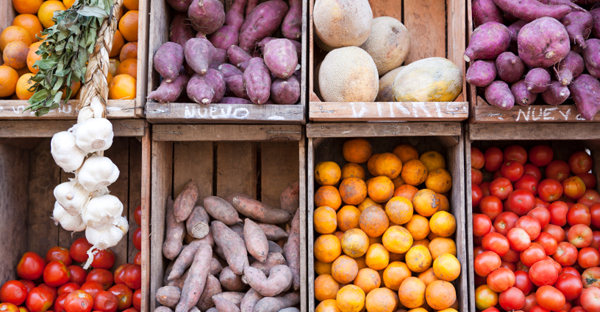

As a professional endurance athlete I have had to learn to deal with high levels of stress.
Not just mental stress from competition, but also extreme physical stress from training over 30 hours a week. If I am not able to recover from a workout quickly, my training sessions will have to be spaced further apart and the rate at which I improve will diminish.
An important fact to be aware of is this: The body’s response to stress is the same, whether it be the physical demands of sport, the environmental strains of breathing polluted air, a poor diet or the hectic pace at which most of us now live. A full, productive life will undoubtedly be a catalyst for an elevated stress level. Stress slows progress and therefore it must be minimized for us to reach our full potential. Success at anything starts with the ability to effectively cope with stress.
I believe the greatest impact we can have on overall stress reduction, is dietary. It is estimated that as much as 40% of all stress can be attributed to a poor diet, something I call nutritional stress. Contributing factors include over-consumption of processed foods and the under-consumption of nutrient dense whole foods that support biological function, activity level and regeneration. Consistently eating acid-forming foods is also a culprit.
My book Thrive explains how a properly implemented whole food, plant-based diet can help alleviate nutritional stress, while poor dietary choices can exacerbate it. The solution is not as simple as just withdrawing from stress; it’s about reducing nutritional stress and making our diets work FOR us rather than against us. So what can we do to reduce nutritional stress?
First, I suggest a shift towards plant based whole foods. Whole foods, as opposed to refined and processed foods, provide nutrient rich nourishment that our body needs to function and regenerate optimally. As a general rule, the less that has been done to food, the more nutritional value it will have. Once the body has been provided with the nutrition it desires, its hunger mechanism shuts off, reducing cravings and the tendency to overeat.
Plant-based whole foods also help support an alkaline environment in our body, whereas all animal products are acid-forming. Because our body’s ideal pH is slightly alkaline, our diet should also be slightly alkaline. Acidic foods such as animal protein, sugar, caffeine, and processed foods tend to deplete our body of alkaline minerals such as calcium, magnesium and potassium, making us more susceptible to chronic and degenerative disease.
I’ll admit that one thing many processed and refined foods have in their favour is the convenience factor. Traditionally, whole foods have been time consuming to prepare – but they don’t have to be. An easy and convenient way to incorporate more plant-based whole foods in your diet is through a daily shake or smoothie. It’s easy to pack nutrients into liquid form, which improves absorption and requires less energy to digest. I have one or more nutrient-packed shakes daily to insure that I get all the nutrients I need to support my activity level and induce a quick recovery.
Ideally, a shake should contain all the elements of a compete meal; protein, carbohydrate and fat. Also, as a vegan athlete I like to take this opportunity to pack in some of my favourite plant-based, nutrient dense foods. I always start each shake with four main ingredients: Hemp protein, ground whole flax seeds, chlorella and maca.
Hemp protein is a raw whole food source of complete protein. So, for those of you who wonder where I get most of my protein, the answer is primarily from hemp foods. Hemp protein is alkaline, easy to digest and full of vitamins, minerals, antioxidants, enzymes and fibre.
Whole flax seeds (avoid flax meal which has had most of its health promoting oils removed) are the richest source of Omega-3 fatty acids in the plant kingdom and a great source of soluble and insoluble fibre. I like to buy whole flax seeds, grind them up myself in a coffee grinder and then store them in the fridge.
Maca is a South American root vegetable that acts as a powerful adrenal tonic. During times of augmented stress, I highly recommend taking maca daily; 2.5 grams or more. Also high in sterols to assist in strength gains, maca is an important food for athletes.
Chlorella is another staple of my nutritional stress reduction program. A prolific, freshwater algae with a protein content exceeding 65%, chlorella is one of the most nutrient dense superfoods on earth. Highly alkalizing, chlorella contains the highest concentration of chlorophyll in nature.
After my four favourite foods above, I’ll also mix in a banana and/or a pear. Berries are excellent as well because they are rich in antioxidants. Sometimes I’ll blend in raw pumpkin seeds for iron and ground sesame seeds for calcium. Try raw carob powder for additional flavour and variety.
Though I am a vegan, meaning I consume no animal-based products, you don’t have to go to such extremes to realize many of the benefits plant-based whole foods can offer. Just starting off by substituting one serving of animal-based products a day with a plant-based whole foods one will provide significant benefits. Over time, you may want to continue increasing your ratio of plant-based vs animal-based foods, but that is for you to decide.
Whole foods provide the body with premium fuel to perform at its peak plus they supply superior “building blocks” for the body to reconstruct new cells after exercise. This is the basis for creating a biologically younger body. Along with regular exercise, high quality whole foods are the best way to reduce nutritional stress, speed up the regeneration process at the cellular level, and improve health and performance.
Copyright 2025 Center for Nutrition Studies. All rights reserved.
Deepen Your Knowledge With Our
Plant-Based Nutrition
Certificate
Plant-Based Nutrition Certificate
- 23,000+ students
- 100% online, learn at your own pace
- No prerequisites
- Continuing education credits











